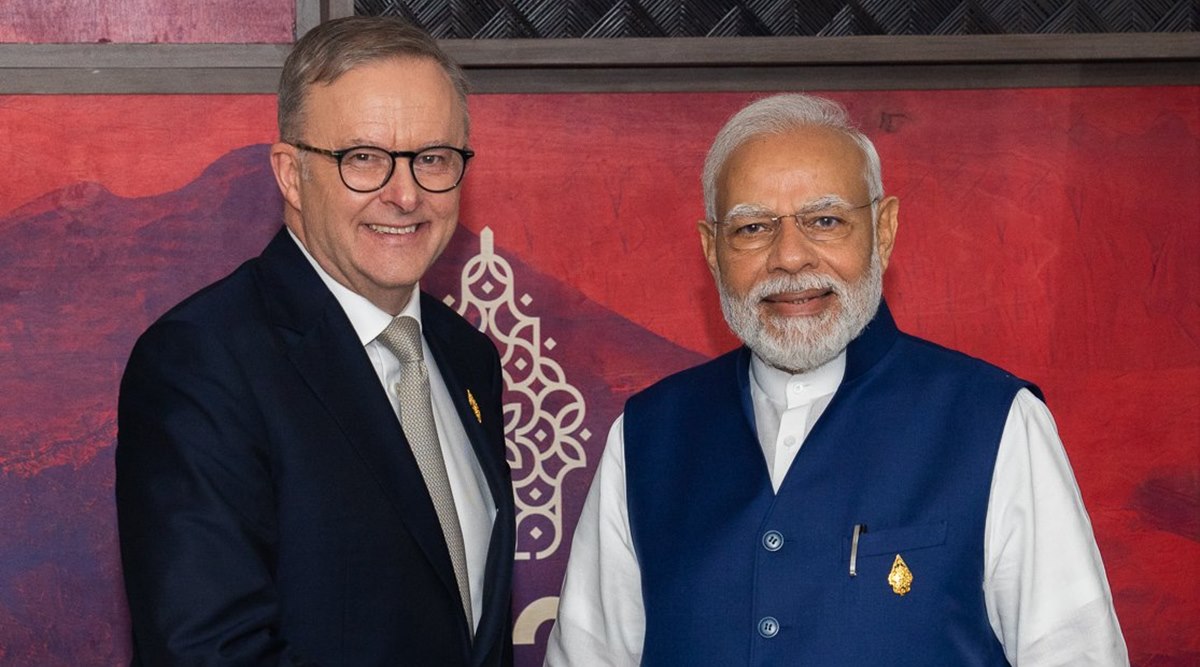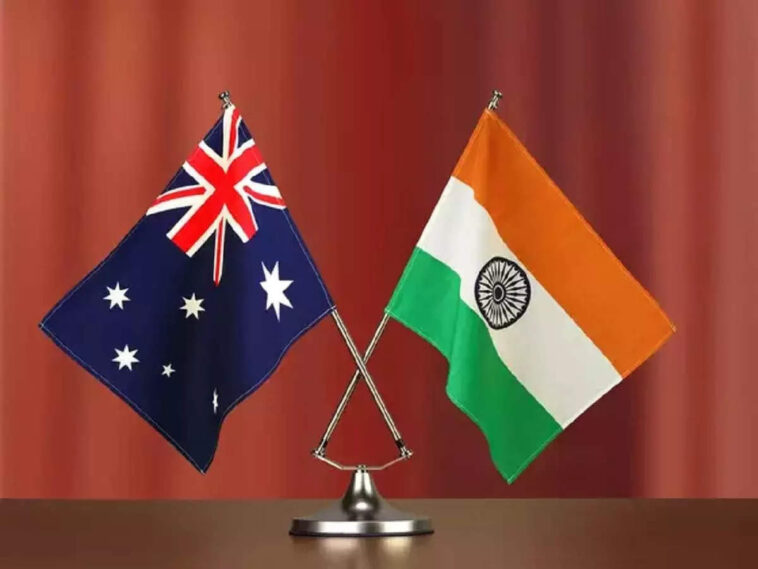At the first annual summit between Prime Ministers Narendra Modi and Anthony Albanese, held in NEW DELHI, India and Australia discussed the finalisation of a comprehensive trade deal and a migration pact as well as ways to boost defence cooperation, reflecting the growing strategic and commercial ties between the two countries.
Against the backdrop of strategic convergences and shared interests in the Indo-Pacific, including threats posed by China’s aggressive actions, the two sides also focused on methods to enhance cooperation in maritime security and develop resilient and dependable supply chains.
During a joint media interaction following their discussions, Modi and Albanese reported that the two sides are advancing negotiations on a comprehensive economic cooperation agreement (CECA) to upgrade an interim trade deal concluded last year and a migration and mobility pact to benefit students and professionals.
Modi remarked that the Economic Cooperation and Trade Agreement (ECTA) signed last year has improved trade and investment opportunities for both parties. “In addition, our teams are working on the CECA,” he said in Hindi.
Modi added that renewable energy, including joint efforts in pure hydrogen and solar power, was a top priority.
Albanese appeared more optimistic about the expeditious conclusion of CECA negotiations, stating that ECTA eliminated tariffs on more than 85 percent of Australian exports to India, thereby benefiting consumers and providing the industry with cheaper inputs.
“We also agreed to conclude our ambitious CECA as quickly as feasible. And I’m hopeful that we’ll be able to finalise it this year,” Albanese said, calling it a “transformational deal” that will generate new employment opportunities and raise the living standards of people on both sides.
India and Australia recently finalised a mechanism for mutual recognition of educational credentials, and Modi stated that the two countries are “making progress” on a mobility agreement that will benefit students, workers, and professionals.
Albanese also applauded the agreement on educational qualifications and expressed a desire to increase the number of Australian universities in India.
“I am also delighted to announce that significant progress has been made on a new migration and mobility partnership arrangement. This agreement will…support the mobility of students, graduates, academic researchers, entrepreneurs, and other professionals from the emerging and high-tech sectors, both now and in the future, as well as enhance cooperation on irregular migration issues. The next time we meet in Australia, we expect to have more information to share regarding this new initiative,” he said.
Modi characterised security cooperation as a crucial pillar of the bilateral partnership and reported that the two parties discussed maritime security in the Indo-Pacific and enhancing mutual defence and security cooperation.
Albanese stated that both parties are committed to strengthening the defence and security partnership in a “increasingly uncertain global security environment” to address shared challenges and work towards an open, stable, and prosperous Indo-Pacific.
Modi remarked that in recent years the two countries have signed significant defense-related agreements, including one on the mutual provision of logistical support between their armed forces. He stated that both parties had discussed methods to enhance the exchange of information between security agencies.
Foreign secretary Vinay Kwatra attempted to downplay China’s role in the growing strategic ties between India and Australia, stating at a media briefing that such cooperation should be viewed as part of the “bilateral eco-system of engagement and partnership, and not as a result of what a third country does.”
Albanese, who will return to India in September for the G20 Summit, extended an invitation to Modi to attend the Quad Leaders Summit in Australia in May.

The two countries signed four agreements regarding sports cooperation, audio-visual co-production to support skilled jobs and the development of film projects, the creation of two task forces on solar power and green hydrogen, and cooperation between India’s Atal Innovation Mission and Australia’s Commonwealth Scientific and Industrial Research Organisation.
Tim Thomas, a former vice president of Prudential Financial, was named the first chief executive officer of the new Centre for Australia-India Relations, which will support new opportunities for collaboration across government, industry, and academia. It will also administer the Maitri scholarship and grant programme.
On March 8, Albanese arrived in Ahmedabad for a three-day visit. In addition to participating in Holi celebrations on Wednesday, he joined Modi on Thursday to witness the first day of the final Border-Gavaskar Trophy Test match. On Thursday, Albanese and the high-powered business delegation that accompanied him met with prominent Indian CEOs in Mumbai.




